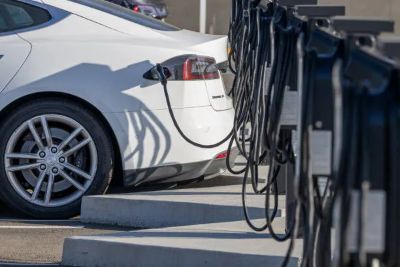


Understanding Electric Vehicles: Types, Benefits, and Charging Options
Electric vehicles (EVs) are rapidly gaining popularity as an environmentally friendly and cost-effective alternative to traditional gasoline-powered cars. As concerns over pollution, rising fuel costs, and climate change grow, EVs offer a solution that is cleaner and more efficient. However, understanding the different types of EVs and their charging options can be confusing for new and prospective EV owners. This guide breaks down the three main types of EVs and the various charging methods to help you make an informed decision.As a leading EV charger manufacturer in China, LiCB Charge offers reliable AC and DC electric vehicle charging stations along with comprehensive charging solutions.
1. Battery Electric Vehicles (BEVs):
BEVs are fully electric cars that rely solely on electricity stored in rechargeable batteries to power an electric motor. They do not have an internal combustion engine (ICE) or any backup fuel system, making them zero-emission vehicles. BEVs offer the most environmentally friendly driving experience since they do not produce tailpipe emissions. Popular models include the Tesla Model 3, Nissan Leaf, and Chevrolet Bolt EV.
Advantages of BEVs:
Zero tailpipe emissions, reducing air pollution.
Lower operating costs as electricity is cheaper than gasoline.
Quieter and smoother driving with instant torque.
Drawbacks of BEVs:
Range anxiety: The fear of running out of charge before reaching a charging station.
Charging infrastructure is still developing, making long trips challenging.
Higher upfront costs, although prices are decreasing.
2. Plug-in Hybrid Electric Vehicles (PHEVs):
PHEVs combine a traditional internal combustion engine (ICE) with a rechargeable battery and electric motor. They can operate on electricity alone for shorter trips, but the gasoline engine kicks in for longer journeys. PHEVs offer a flexible alternative to BEVs by providing the benefits of electric driving for daily commutes and the convenience of gasoline power for longer trips. Popular PHEVs include the Toyota Prius Prime, Ford Escape Plug-in Hybrid, and BMW 330e.
Advantages of PHEVs:
Flexible driving range, combining electric power for short trips and gasoline for long ones.
Reduced fuel consumption and emissions compared to conventional vehicles.
No range anxiety as the gasoline engine can take over when the battery is depleted.
Drawbacks of PHEVs:
Higher purchase price than traditional hybrids and gasoline cars.
Dual powertrains can complicate maintenance.
Limited electric range compared to BEVs.
3. Hybrid Electric Vehicles (HEVs):
HEVs are similar to PHEVs but cannot be plugged in for recharging. Instead, they use both an internal combustion engine and an electric motor to improve fuel efficiency. The battery is charged through regenerative braking and the ICE. HEVs offer better fuel economy than conventional cars but still rely on gasoline for power. Notable models include the Toyota Prius, Honda Insight, and Hyundai Ioniq Hybrid.
Advantages of HEVs:
Improved fuel efficiency compared to traditional gasoline vehicles.
No need for external charging; the car recharges itself through regenerative braking.
Drawbacks of HEVs:
Higher upfront cost compared to standard gasoline vehicles.
Less efficient than BEVs or PHEVs in terms of reducing emissions.
There are three primary methods for charging EVs: Level 1, Level 2, and DC fast charging. Level 1 charging uses a standard household outlet, while Level 2 requires a dedicated charging station. DC fast charging is the fastest option, offering rapid charging for long-distance trips.
In conclusion, the transition to electric mobility is gaining momentum as EV technology continues to improve. Whether you choose a BEV, PHEV, or HEV depends on your driving habits and access to charging infrastructure. As charging networks expand and battery technology advances, EV ownership is becoming more accessible, making it an excellent choice for reducing carbon emissions and lowering operating costs.Know more about Google SEO Directory
